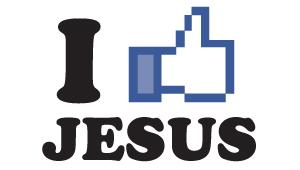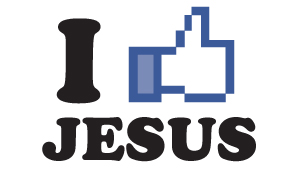Use Facebook (and Keep Your Soul)

 Since February 4, 2004, the number of Facebook users has risen from zero to about 800,000,000, or 11% of the world’s population.
Since February 4, 2004, the number of Facebook users has risen from zero to about 800,000,000, or 11% of the world’s population.
That’s a lot of Farmville.
As most of us in the U.S., particularly on campus, are on Facebook, I’ve been thinking about how I should use it. It can’t be good to embrace something wholeheartedly without a little critique and consideration of if it’s good for me and others. And as a Christian, I need to ask how my thoughts on faith sound to others, even in the cybersphere. Here’s where I’m at:
1. Be there.
In order to love people, help people, and serve people, you need to be where they are, even if that’s a digital platform. I’m sure God calls some of us to eschew Facebook (and other social streams) for good reasons, but for most of us, I think it’s a part of a robust cultural engagement that Christians often have missed. Some of my friends who aren’t Christians really appreciate getting to interact with me (and vice versa) and that wouldn’t be happening without Facebook. I’m accessible, and so are they.
2. Know healthy boundaries of sharing.
Some people are inclined to only share that which makes them look really good, a carefully tended image. Others don’t know when to shut up. Crashing and burning in front of everyone (and with Facebook’s new defaults and public options, I mean everyone) isn’t healthy or helpful. Some things do not need to be “Facebook official.”
3. Watch out for selfishness and narcissm.
You are not the center of the universe, even the virtual universe. Put others’ needs before your own even online. I try to share useful things with others, and I have a firm commitment to post about what I am eating no more than twice a year. (Nobody cares, folks.) I’ve also learned that my humor sometimes gets lost in the ether. I have to remember to be courteous in my comments and interactions online.
4. Aim to become the person you wish you were.
I’m tempted to post only the very best about me, a persona that doesn’t always match reality. But that persona might actually be worth being. Staying plugged into the public can call you to see the kind of life you want to be living (and posting about), like helping somebody with a flat tire or reading a thought-provoking book. I think God uses Facebook to help me see more clearly the man I am called to be.
5. Monitor your time.
If I’m not thinking about it, I would check Facebook moments after I climb out of bed, as I wait for my tea kettle to boil. I would check it again before I leave home. It would be my first order of business at work. I would check it a number of times in the morning, right before lunch, after lunch, and before I leave. I would check it on my phone at a stop light on the way home, and I would wish my phone was waterproof so I could check it in the shower. It’s addictive. I need to make sure I’m really with the people I’m with, that I’m present. I aim to let Facebook complement and feed into face-to-face interactions.
6. Consider your audience.
I talk differently to friends who I know want to follow Jesus and those who do not. There are different expectations, different themes, even different expressions that work with each group of friends. Some Christians I know don’t seem to consider this, with posts that must be real head-scratchers for people who are unfamiliar with the Bible or the Church. And I know others who probably catch flak from their parents or pastors for being friends with folks who have no interest in the Bible. A couple months ago, Facebook introduced lists that can help on this front, where you can share something like a request for prayer with select people, depending on your relationship and who they are. I’m trying this out and it feels much more natural to me to share most posts publicly and a few specific ones with people I know are with me on the road behind Jesus.
7. Don’t discount weak links.
I don’t really know some of the people I’m Facebook friends with. Some I’ve not talked to since college or even high school. Yet they’ve watched me for a while and concluded that I’m faithful and thoughtful, that I’m a safe person to talk to. Then they message me or grab me at a high school reunion and ask some really deep stuff. In some cases, it seems like I’m one of the few thoughtful, caring people (let alone Christians) in their life. That’s a great opportunity to serve others.
Even though I like to say that “Facebook is my job,” I’m still learning. If you want to read more, check out Friending by Lynne Baab, Flickering Pixels: How Technology Shapes Your Faith by Shane Hipps, or The Next Story: Life and Faith after the Digital Explosion by Tim Challies.
Why and how do you use Facebook (or Twitter or YouTube or Tumblr or the rest)?
Adam Jeske regularly contributes to Relevant and is co-authoring a book with Christine Jeske on bringing lessons from the global Church back to North America (IVP, November 2012). He blogs, tweets, and serves as the Associate Director of Communications for InterVarsity. He does not play Farmville.



